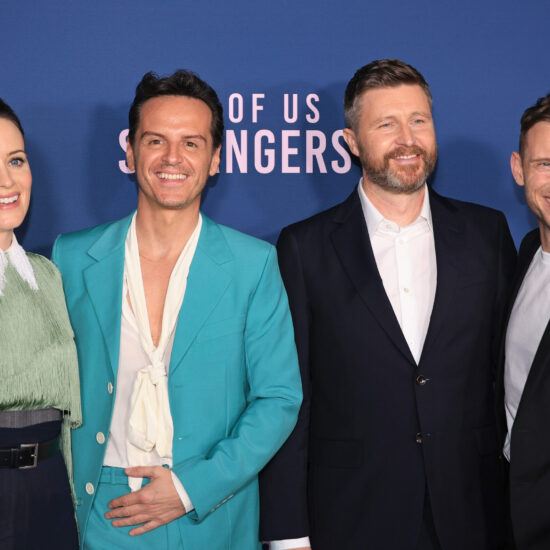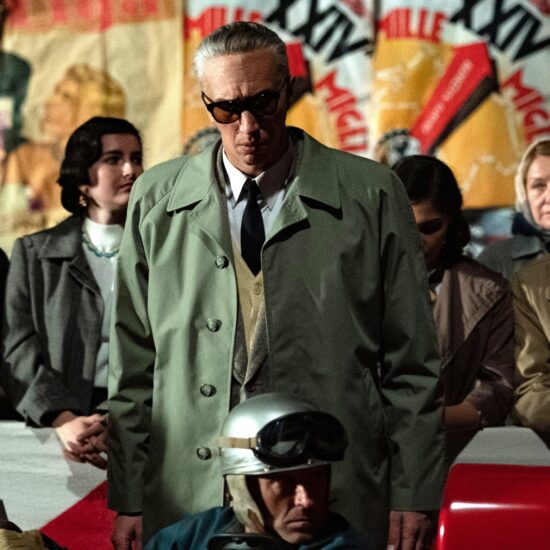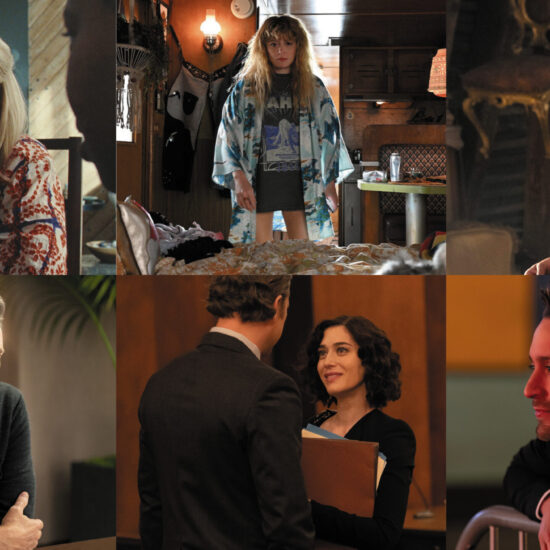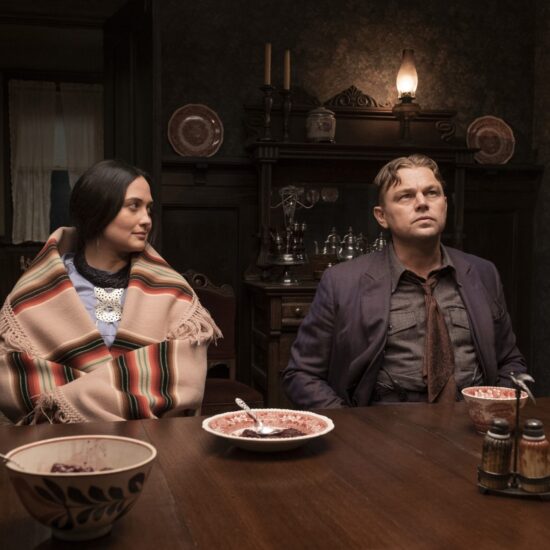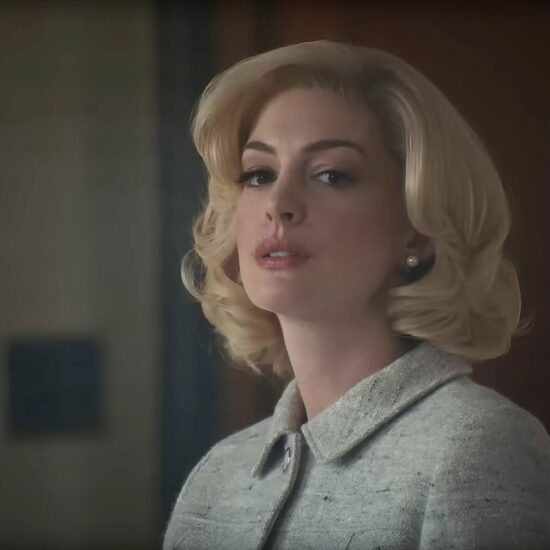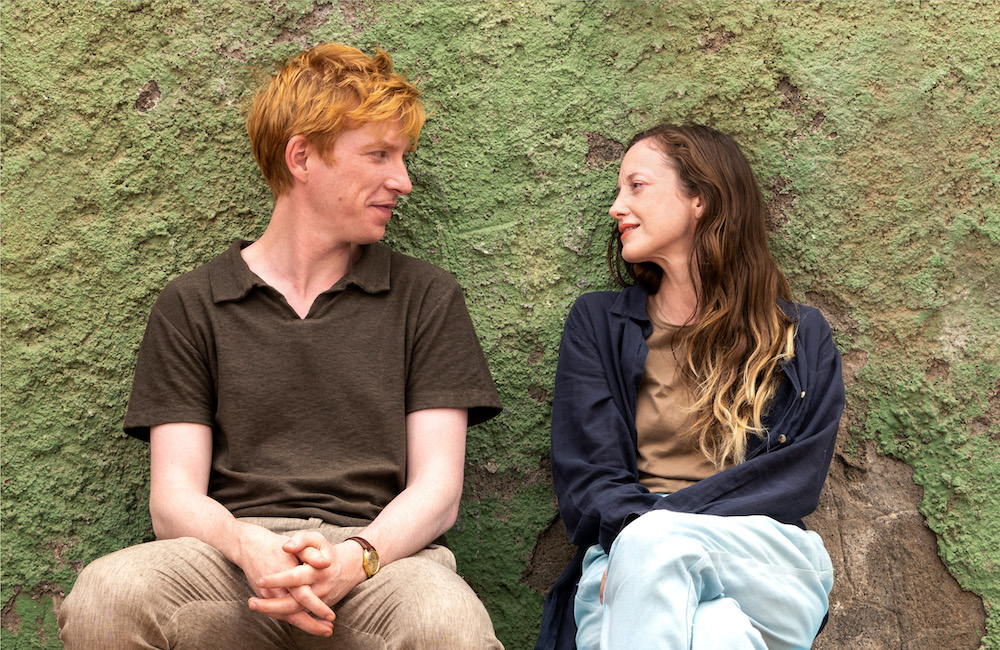
Ah, love. Is there anything it fails to overcome? In reality, the answer is a resounding, “yes, obviously, so many things” — ranging from physical separation and infidelity to your partner’s sudden preoccupation with Aaron Rodgers or their repeated mispronunciation of “picture” as “pitcher.” But if you’re a head-in-the-clouds romantic, nothing so trivial could tear apart two people whose destiny is written in the stars. Logic and practicality don’t apply, the heart wants what it wants, yada yada yada. Love is thee reason for being, and thus it can be a reason to justify almost anything — all sorts of behavior, be it swooning or sordid, can be overlooked in the name of love.
“Alice & Jack” appears over-reliant on this type of romanticism. The Channel 4 series, which premiered at the Toronto International Film Festival, follows Domhnall Gleeson’s Jack and Andrea Riseborough’s Alice as they embark on an unconventional love story, spanning 16 years and straining common sense. The two stars craft tender performances, instilling their characters with aching hearts nearly big enough to hold together a prolonged affair of sweeping, indefinable intimacy. But after just two 45-minute episodes, it’s unclear if we’re meant to be rooting for these star-crossed lovers to find a way back to each other (which seems like a very bad idea), or if Jack and Alice serve as a warning to avoid similarly poisonous relationships (which, while fair, wouldn’t match the series’ soft-hearted storytelling).
“Love is the best thing we have. Maybe, after we strip away all the bullshit, it’s the only thing we have.” So narrates Gleeson’s Jack as a kite flies over a lush green English field. Alice (Riseborough) is walking away from him, but she glances over her shoulder near the top of the hill and catches his eye. They look, they turn, their distance grows. Then it’s two years earlier, and the pair are meeting for the first time in a nondescript bar, shaking hands and getting right down to business. She grills him on what he does for a living and why he does it, deflecting any inquiry about her own life until she’s satisfied with Jack’s responses. Turns out he’s a biomedical researcher, working to cure a rare disease, but he’s not doing it for the money or any personal association. “Curing it will help people,” he says. “But it won’t help you, or anyone you know,” she counters. “No,” he admits, but Jack won’t go so far as to call himself “a crusader.” “You should,” Alice says. “Because it’s really adorable.”
Once her line of questioning is through, Jack tries to counter, but all Alice says about her job is, “I make money,” describing her acquisition of wealth as “a defense fund” against the world. But not him. It’s “everyone else” she has to worry about. Gleeson plays their initial meeting particularly well, walking the line between annoyed exasperation and flirtatious curiosity at just the right tempo. Riseborough, as the focused interrogator, shares just enough in the fleeting moments Alice lets down her guard to draw you in. More to the point, their rat-a-tat banter establishes two key aspects of each prospective partner: 1. They’re guided by distinct goals, but united by good intentions, and 2. they’re very different people. He’s open, she’s defensive. He’s figuring things out, she’s locked in. He’s your Average Joe, and she’s… someone special.
That intrigue, though, is largely fueled by withholding. After their first night together, Alice shuts things down. She doesn’t let Jack sleep over, and, with as much respect as possible, she tells him not to call or text. Her directions are clear and the implication almost as crystal — that she doesn’t see people more than once (which is confirmed later). But all Jack remembers is their unique bond. So, of course, he reaches out again, and a 16-year relationship ensues.
Only a few of those years are covered in the two episodes screened at TIFF (bringing us back to their hillside split under the skyward kite), but writer/creator Victor Levin (“Destination Wedding”) jumps back two years, then ahead three months, then forward another year and a half, then back and forth and so on. The movement intends to hone in on key moments for each lead character, though it has the unintended effect of minimizing their connection. A romance rooted in uncontrollable passion typically can’t be explained in a single conversation. Whether it’s a continued dialogue or chance encounters, the fire between soulmates needs to build. Here, it’s taken for granted.
Another douse of cold water: “Alice & Jack” is told almost exclusively from Jack’s perspective. He’s the one pining, he’s the one trying to solve her puzzle, he’s the one talking over his troubles with a friend (Sunil Patel). Meanwhile, she’s glimpsed staring off into the ocean or deleting a text or offering curt instructions to her assistant (Aimee Lou Wood). Too much of her identity is built around mystery, and while stoic caution may make for an honest portrayal of a woman with good reason to protect herself, it doesn’t wash away the damage she does or help explain the damage he invites upon himself.
Love. That’s why she acts sans consideration, and that’s why he responds with similar single-mindedness. But love isn’t a band-aid. It isn’t a make-good. It isn’t your identity, your integrity, or your empathy. “Alice and Jack” doesn’t establish its individual characters well enough to make us root for them in spite of their questionable, often catastrophic, choices. Instead, it treats romanticism like a crutch, hoping that whatever primordial emotion Alice and Jack feel for each other will be felt and shared by its audience, and that they, too, are willing to follow their hearts, consequences (mainly for other innocent people) be damned. Gleeson and Riseborough provide reason enough to watch and wonder if “Alice and Jack” will trade in its dodgy love story for a wizened cautionary tale. And it’s as thrilling to see Aisling Bea as it is horrifying to witness her character’s fate. But not even these three treasures seem fit to fix a doomed romance.
Grade: C+
“Alice and Jack” premiered Saturday, September 16 at the Toronto International Film Festival. Channel 4 will air the series in the U.K. Fremandle is handling global sales.











